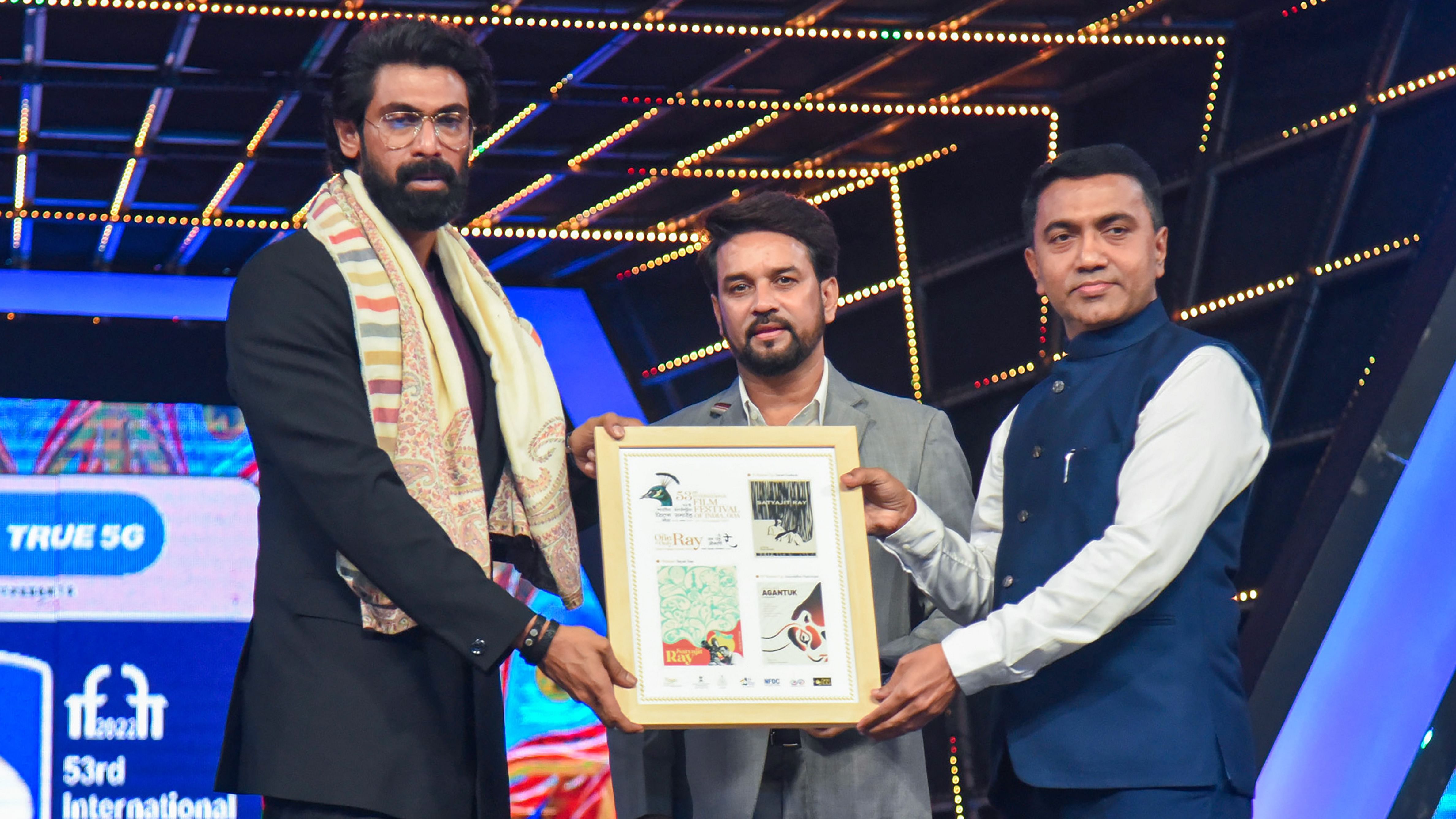

The weather alternated between muggy and pleasant as 10,000 delegates descended on Goa for the 53rd edition of the International Film Festival of India. The turnout, said to be the biggest ever, pleased the hosts, especially since the pandemic had robbed the last two editions of their festive air.
Finding a cab
Ride-hailing apps such as Uber and Ola don’t work in Goa, although Uber allows you to hire bikes to send consignments. If you want to find a ride, you have to use GoaMiles, a government-run app. The app was glitchy, and didn’t work for long hours, and the cab drivers were upset. As for the delegates, once they got to the city, they could commute between the venues in the free shuttles provided by the hosts.
Punters welcome
Along the main street, and across the festival venues, you see casinos floating on the river Mandovi. Goa is among just three states in India to allow casinos. The hotels are full during the weekends, when groups of men from the southern states stream in to gamble. I heard a man speaking in Kannada telling someone over the phone: ‘I can’t meet you today. I am in Belagavi.’ Sure.
An Inox multiplex is attached to the building that houses the Entertainment Society of Goa. The conversations and masterclasses took place inside the colonial-era building, while the films were screened simultaneously at the multiplex. In keeping with the holiday spirit of Goa, the food court had three liquor stalls, and film buffs and filmmakers sat around, mostly sipping beer. There weren’t as many stalls for coffee and tea.
Crowded classes
The masterclasses and conversations drew full houses. Mark Osborne, who co-directed Kung Fu Panda (2013) and Little Prince (2015), spoke about his journey of making animation films. He attributed the success of Kung Fu Panda to his fondness for martial arts and Chinese culture.
Varun Sharma, who appears in Chhichhore and the Fukrey series, spoke about the importance of carving a niche. Nawazuddin Siddiqui and Rishab Shetty were the biggest attractions at the masterclasses, and the clamour to enter the hall was huge even after the doors were closed. Nawazuddin spoke about his journey from the Gujarati stage to the National School of Drama and then on to Mumbai, where “they didn’t want a trained actor.” Rishab has become an all-India sensation after the runaway success of Kantara. He spoke fondly about the Kannada actors who had inspired him, and described himself as a believer when he was asked about faith. Prasoon Joshi spoke about the craft of writing lyrics, and sang snatches from some of his songs.
Book release
A ‘handbook for cinephiles’ by M K Raghavendra, the well-known film critic based in Bengaluru, was launched at Manoshanti Hotel, a 10-minute walk from the main venue. Called Thinking Cinema, it is published by FIPRESCI, the International Federation of Film Critics, in collaboration with the Federation of Film Societies of India Keralam and Best Books, Kolkata. At the launch, Raghavendra spoke about how crime films and romantic films are treated differently by different film cultures. It was an intimate event, followed by lunch.
Film buffs from Kerala outnumbered delegates from other states. An insider put their number at 60 per cent. Clearly, the thriving film society culture in the state fuels curiosity about film festivals elsewhere.
Trade sessions
The pavilion attached to the Film Bazaar was sprawling, and had stalls from a number of countries, besides organisations such as the Film Archives of India, Pune. One of the stalls was dedicated to writers so that they could pitch their works to filmmakers. That was a first-of-its-kind festival initiative. “This year, we seem to have way more sellers than buyers,” said a filmmaker from Bengaluru. And that, again, could be because this was the first bazaar after two years of the pandemic.
Fireworks on last day
Film festivals usually end with a glittering ceremony replete with live dance and music performances. Once the award winners are announced, politicians talk about the films they watched in their youthful years. Oblivious to the edgy festival ethos,they routinely advise filmmakers to make ‘socially relevant’ films. This year, ‘nationalism’ had replaced ‘social relevance’. The closing ceremony is seen as a time for nostalgia, camaraderie and goodbyes rather than serious film criticism. But this year’s IFFI turned out to be an exception, thanks to Nadav Lapid, Israeli filmmaker and head of the jury. He described ‘The Kashmir Files’ as a vulgar propaganda film, and wondered how it had made it to the competition section. Diplomats, politicians and filmmakers are continuing to react to him days after the curtains came down on IFFI 2022. This festival ended with a bang, and not the usual whimper.